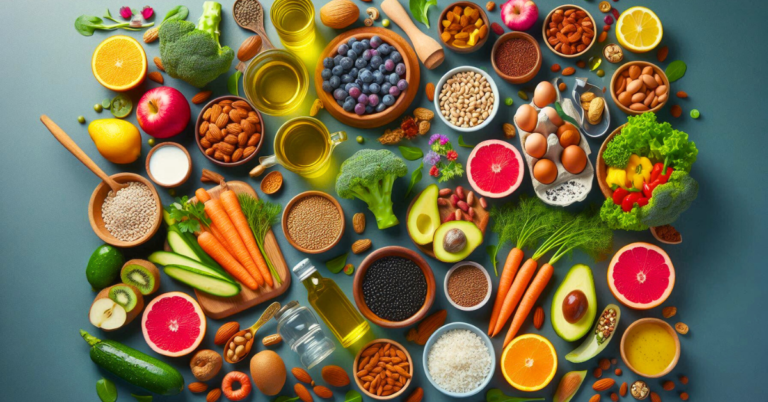Nutrition is the cornerstone of health, affecting every aspect of our well-being, from energy levels to disease prevention. Whether you’re a fitness enthusiast, a busy professional, or someone looking to improve your diet, understanding the different types of nutrition is essential. In this guide, we’ll explore the nine types of nutrition that can boost your health and help you lead a more balanced life. By the end of this post, you’ll have a clear understanding of how to incorporate these essential nutrients into your daily routine.
1. Macronutrients: The Foundation of Your Diet
Carbohydrates:
Carbohydrates are your body’s primary source of energy. They fuel your brain, muscles, and other vital organs. Include complex carbs like whole grains, vegetables, and legumes in your diet for sustained energy.
Proteins:
Proteins are the building blocks of your body. They help repair tissues, build muscles, and support immune function. Sources of protein include lean meats, fish, eggs, dairy, beans, and nuts.
Fats:
Fats are essential for brain health, hormone production, and nutrient absorption. Focus on healthy fats such as those found in avocados, nuts, seeds, and olive oil while limiting saturated and trans fats.

2. Micronutrients: The Vital Vitamins and Minerals
Vitamins:
Vitamins play a crucial role in various bodily functions, including immune support, energy production, and bone health. Key vitamins include A, C, D, E, and K, which you can obtain from fruits, vegetables, dairy, and sunlight exposure.
Minerals:
Minerals such as calcium, potassium, magnesium, and iron are essential for bone health, muscle function, and oxygen transport. Incorporate leafy greens, nuts, seeds, and lean meats into your diet to meet your mineral needs.
3. Fiber: The Digestive Health Hero
Fiber is crucial for digestive health, helping to regulate bowel movements and maintain a healthy gut. There are two types of fiber: soluble and insoluble. Soluble fiber helps lower cholesterol and control blood sugar levels, while insoluble fiber aids in digestion. Include foods like oats, beans, fruits, and vegetables to ensure adequate fiber intake.
4. Water: The Lifeblood of Your Body
Water is essential for every bodily function, from temperature regulation to nutrient transport. Staying hydrated is key to maintaining energy levels, supporting digestion, and promoting skin health. Aim to drink at least 8 glasses of water daily, and more if you’re active.
5. Antioxidants: The Body’s Defense System
Antioxidants protect your body from oxidative stress and free radical damage, which can lead to chronic diseases. Vitamins C and E, beta-carotene, and selenium are potent antioxidants found in fruits, vegetables, nuts, and seeds. A diet rich in colorful fruits and vegetables ensures you’re getting a wide range of antioxidants.
6. Phytochemicals: Plant Power for Health
Phytochemicals are compounds found in plants that have protective effects against diseases. These include flavonoids, carotenoids, and polyphenols, which are abundant in fruits, vegetables, tea, and whole grains. A diet high in plant-based foods supports overall health and reduces the risk of chronic illnesses.
7. Probiotics: The Gut Health Guardians
Probiotics are live beneficial bacteria that support gut health, digestion, and immune function. They can be found in fermented foods like yogurt, kefir, sauerkraut, and kimchi. Including probiotics in your diet can improve gut flora balance, reduce inflammation, and enhance nutrient absorption.
8. Omega-3 Fatty Acids: Essential for Heart and Brain Health
Omega-3 fatty acids are essential fats that play a vital role in heart health, brain function, and inflammation reduction. Sources include fatty fish like salmon, flaxseeds, chia seeds, and walnuts. Regular consumption of omega-3s supports cardiovascular health and cognitive function.
9. Electrolytes: Key for Hydration and Muscle Function
Electrolytes such as sodium, potassium, and magnesium are crucial for maintaining fluid balance, muscle function, and nerve signaling. You can obtain electrolytes from foods like bananas, spinach, avocados, and electrolyte-rich drinks, especially after intense exercise or in hot climates.
Empower Your Health with Balanced Nutrition
Understanding and incorporating these nine types of nutrition into your daily routine can significantly boost your health and well-being. By focusing on a balanced diet rich in macronutrients, micronutrients, fiber, water, antioxidants, phytochemicals, probiotics, omega-3 fatty acids, and electrolytes, you empower yourself to live a healthier, more vibrant life. Remember, small changes can make a big difference. Start by integrating one or two of these nutritional elements into your diet today, and watch as your health improves over time. Your body will thank you for it!
Call to Action: Take the first step towards better health by assessing your current diet. Identify areas where you can incorporate more of these essential nutrients and make gradual changes. Your journey to improved health and vitality starts now!
Understanding the nine types of nutrition, including macronutrients, micronutrients, and essential nutrients like omega-3 fatty acids, is crucial for maintaining overall health. Each type plays a unique role in supporting various bodily functions, from energy production to disease prevention.
To incorporate all nine types of nutrition into your daily diet, focus on a balanced intake of proteins, healthy fats, carbohydrates, vitamins, minerals, fiber, water, antioxidants, and probiotics. Eating a variety of whole foods, including fruits, vegetables, lean meats, and whole grains, can help you achieve this balance.
Focusing on these nine types of nutrition can lead to numerous health benefits, such as improved energy levels, better digestion, enhanced brain function, stronger immunity, and reduced risk of chronic diseases. A well-rounded diet that includes these essential nutrients supports overall well-being and longevity.


